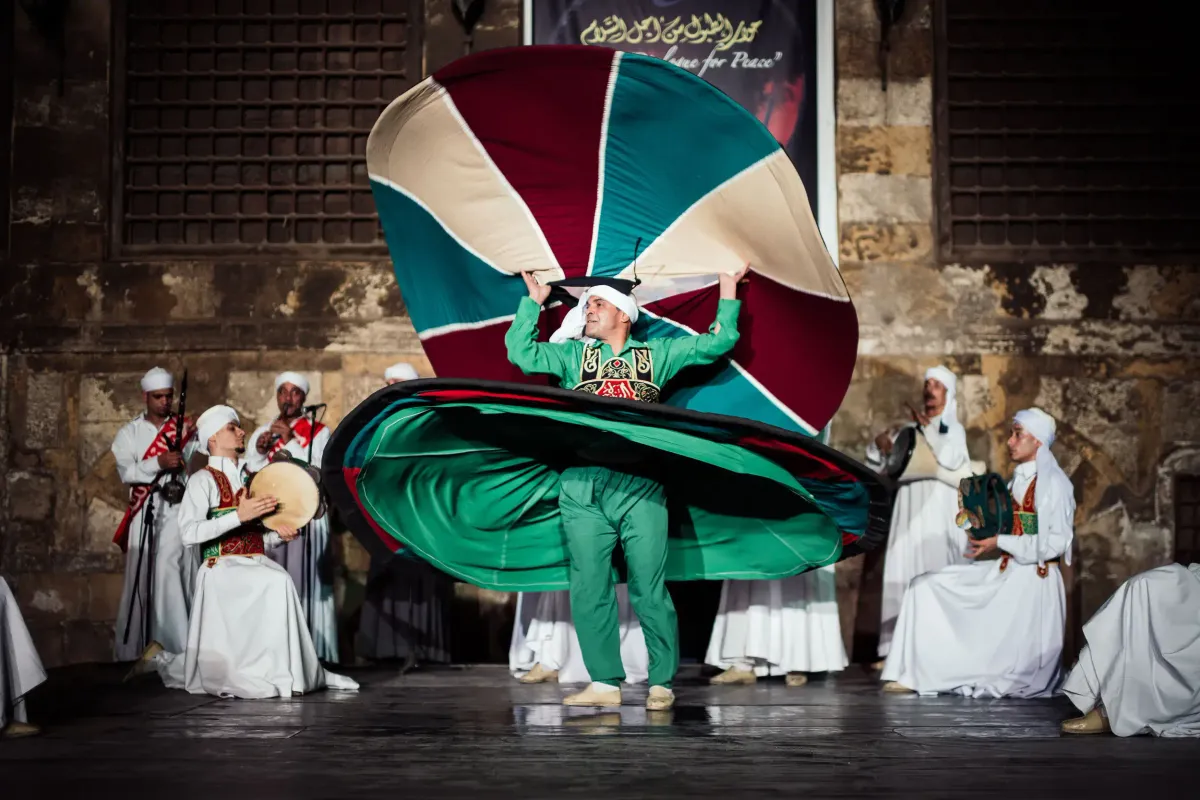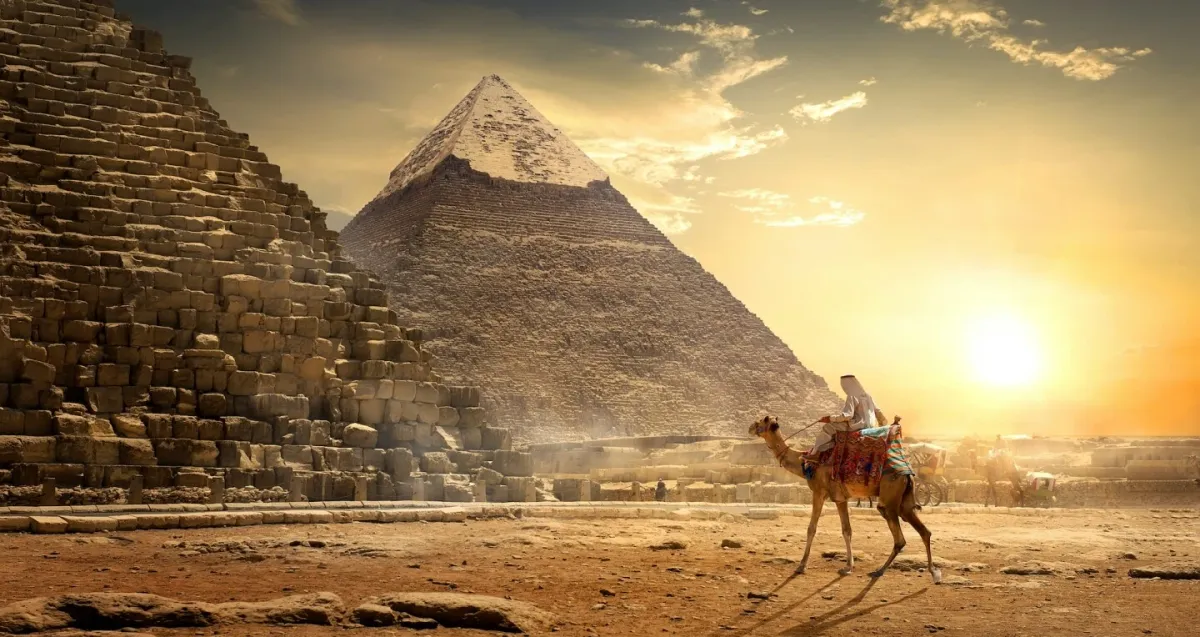As we well know, the majority of Egyptians are extremely religious people (about 90% of them are Muslims), and most women cover themselves from head to toe.
Unlike us, from Western countries, who make sure to best cover our eyes during the summer. 🙂 Therefore, knowing and respecting a few minimum rules of conduct and dress etiquette, specific to predominantly Muslim countries, are seen as necessary for each of us, man or woman.
I admit, I haven't always respected them, and it has happened that I left the hotel with a somewhat shorter skirt, a deeper neckline, or maybe too tight clothes. But hey, I was on vacation... No one pulled my sleeve (missing), but I couldn't help but notice the whispers, indiscreet, malicious glances, and even whistles.
Well, to avoid such embarrassing situations, I will present some rules that you must follow. Not just regarding how we dress, but also how we behave on the street, how we interact with locals, as well as how to approach certain situations, such as shopping, for example.

If you're planning a vacation in a Muslim country, follow my advice, and you will have a special experience. I will refer especially to Egypt, because this is the only Muslim country I have visited many times and can share my own experience.
Egypt is a permissive country in terms of dress code.
But that doesn't mean it's the same everywhere. However, let's not forget that there are countries where a very strict dress code is imposed. In Iran, for example, women cannot go out in public with their heads uncovered.
It's not necessary to wrap yourself completely, but you will need to wear a headscarf or scarf to cover your hair. Worse, in Saudi Arabia, where tourism is almost nonexistent, women are required to wear loose, long, black clothes, and to have their head covered with an abaya (a kind of hood).
Decent Dress
I often receive questions, generally from women, about what to pack for a trip to Egypt. Due to tourism, Egyptians have become quite accustomed and therefore permissive with tourists.
If you're not dressed decently on the street, the police won't pick you up, as might happen in other Muslim countries. But you will not escape the malicious and indiscreet looks.
Those who live in tourist areas are used to seeing tourists day by day. So, they are no longer bothered when they see a lady wearing very short pants. But this is not a rule.
However, if you find yourself in more conservative and less touristy cities, such as Alexandria, Qena, Luxor, or even areas of Cairo, then try to dress as decently as possible.
Wear a longer skirt that covers your knees, avoid going out in a tank top or with generous necklines. Even if that's how you're used to dressing every day, always remember that you're in a Muslim country and respect that.

So, my answer is always something like this:
If you're going to spend your vacation at the Red Sea resorts, take things you usually wear at home. But also pack some more formal items for potential outings outside the resorts, trips to the pyramids, etc.
However, if you plan a more active vacation that includes travels through less touristy areas, pack decent items, long skirts and pants, T-shirts and shirts with sleeves, as well as a scarf to cover your head when you want to visit a mosque.
The same advice applies to men. Adjust your attire based on the places you will visit. You will not be allowed into mosques wearing shorts and a tank top.
Always remember that you are in a Muslim country and show some respect towards those places, as well as those who live there.
Public Displays of Affection
Even if you are husband and wife, that does not give you the right to show affection on the streets of Egypt, or any other Muslim country. Maybe no one will confront you, but you will not be viewed favorably.
Try to be as discreet as possible when you're outside the resorts. You'll attract stares anyway, you are foreigners!
Often, in the Muslim world, kissing can be equivalent to sex, and there have been many cases where foreign tourists were arrested for this reason. So, the next time you want to kiss your partner on the street, remember that you are in a Muslim country.
I haven't heard of such situations in Egypt, but I remember a case from last year at the pyramids. Two Danes were arrested, caught during a nude photo session at night. Well, that really is inappropriate…
Holding hands, hugging, or kissing between opposite-sex individuals in public places are not seen favorably by locals, but on the other hand, yes, it's strange, if these occur between same-sex individuals, they are considered signs of friendship.
But it's better to avoid such situations!
Interaction with Locals
Egyptians are very friendly people, always eager to find out where you're from, how long you're staying in their country, where you plan to go, what it's like in your country, etc.
I've noticed this quite often: after a few words, Egyptians will be interested in whether or not you're married. From there, they will know in which direction to take the conversation.
Often they will become quite indiscreet, asking all sorts of strange questions. I have often been curious about their views on polygamy. Well, that's all it takes to give them something to talk about, and you won't escape their questions.
Over time, I've made some acquaintances in Egypt and we've seen each other again. If in our culture, it's common practice to hug and possibly kiss a friend on the cheek, in this case, I found them to be reserved. At most, a handshake.
If you have lighter skin, green or blue eyes, and blond hair, you will attract the attention of all Egyptian men. They will not hesitate to compliment you, to look insistently at you, or even to whistle at you, even if you are accompanied by a man.
Try to ignore these behaviors and act as naturally as possible! To be understood, decently.
Gifts for Locals
As a foreign tourist in a country like Egypt, it's beneficial to have a local from whom you can learn how things work. And having spent some time among them, some friendships have formed.
I still keep in touch with a few of them on Facebook, we greet each other from time to time, and when I return to Egypt, we meet up. They have helped me many times with all sorts of information about costs, about cool places you can't find in tourist guides, you know... all sorts of stuff. Whenever I needed any precise information, from the ground, I always turned to them.
You know all too well that news in the press is often exaggerated in one direction or another, and I preferred to ask directly at the source.
As I am about to leave again, I will clearly meet with those friends and I would like to bring them a small souvenir. I wouldn't want it to be something meaningless to them, but neither something that could offend them. Especially since I am a girl, they are men, and that gesture could be misinterpreted.
We need to be very careful with these gifts. Maybe a bottle of vodka would have been suitable for a friend from another part of the world. Well, I can't bring alcohol to a Muslim. Ah, and pay close attention: do not give flowers to an Egyptian woman! In Egypt, flowers are given only at funerals, weddings, or to the sick!
It would be appropriate to give sweets, a traditional clothing item, or usual souvenirs like magnets, or various other decorative items.
I remember I once asked what they would want from Europe. Well... the question didn't exactly come from me; I was translating it on behalf of a man... But none hesitated to answer that they would like a girl, or CDs with adult movies. Well...that's out of the question in my case.
Shopping in Egypt
I have to admit, I really don't like going shopping in Egypt. In Egypt, almost everything is negotiable, and there are hardly any stores with fixed prices.
I recently found out that a mall has opened in Hurghada, where there is also a Carrefour, so at least I can peacefully get most of the necessities from there.
I don't like shopping in Egypt because I'm not good at negotiating. I'm used to paying the asking price, and here that's not good at all. When they see you're a tourist, they ask for ten times the correct price, and you end up paying it.
At the market, vegetables and fruits are very cheap, a kilogram of strawberries for example costs a maximum 0.4 euro. I had learned, but then forgot and need to remind myself of the Arabic numerals again. In the markets, you sometimes find prices displayed, but even so, they ask for 10 times the price.
In Egypt, Negotiation is Everywhere.
When you go to the bazaar for souvenirs, try to find a shop where you can buy multiple items, and you will get a good price. But be mindful of your calculations, check and negotiate. Sellers won't hesitate to deceive you!
You'll see that, as you walk through shopping areas, sellers will lure you with their products and attractive discounts. I really don't like this practice of theirs to forcibly drag you into the store and shove things under your nose, but there's nothing you can do, you're in Egypt.
Very important: do not engage in a negotiation game if you don't intend to buy. The merchant will get very annoyed when they see you don't want anything, and you'll just be wasting your time!
Visiting Mosques
If you want to visit the inside of a mosque, and I urge you to do it at least once, you will need to adhere to some very strict rules. Men will not be allowed entry with shorts and tank tops.
You must have a shirt or t-shirt with sleeves that are at least elbow-length and long trousers. Usually, in tourist places, there are spots where you can rent a galabeya, that long usually white male dress.
The same goes for women; you need to wear clothing that covers your arms and legs. Additionally, you will need to cover your head with a scarf.
The interiors of mosques are very beautiful. It's worth overcoming these obstacles and for a few moments to equip yourself with Muslim garments. You will not be able to enter the mosque with your shoes on; you will need to leave your shoes at the entrance and enter barefoot.
I've done this twice, it's odd with that dress, but it was interesting. I would do it again!
Street Photography
When we travel to new places, we tend to want to capture everything we come across in photographs, regardless of the risks. And in Egypt, as in many places around the world, photographing military objectives and security checkpoints is strictly forbidden. You will not be able to photograph soldiers on duty or police officers in the streets.
With places and locals, it's a different story. Try to avoid photographing people dressed in traditional clothes or children. Or ask for permission! It's normal that when you want to take a picture of someone, you ask for permission first! Maybe offer something for that service, like some candies, for example!
Visiting an Egyptian Home
Such an experience is not encountered often. If you're invited to a meal, accept without hesitation. Egyptians are very hospitable and will be incredibly pleased to have a foreign guest. They will go out of their way to put the best of what they have on the table, and you will feel welcome.
Don't forget to bring a small gift for the children and possibly for the hostess. They will appreciate it a lot. And remember to take off your shoes at the entrance!
I was once invited (not alone, of course) to the home of some locals. I can't say that I loved the experience, but it was interesting. Probably also because there were only two guys living there, alone, it wasn't a usual environment, like in a real family.
However, do not accept an invitation from a man if you are alone!
Respect Ramadan
In the Islamic world, Ramadan is the month of fasting, during which faithful Muslims abstain from food, drink, and sexual relations from dawn until sunset.
Typically, during Ramadan, restaurants, shops, and cafes are closed during the day. But I understand that there are restaurants, generally in tourist areas, that serve food and drinks to tourists. You see, I've never been there during the fasting period.
In Egypt, the rules are not as strict, but it is considered good manners not to eat or drink in the street during this month of fasting, in daylight hours.
Don't Consume Alcohol in the Street
In some countries, such as Saudi Arabia, Yemen, or Iran, alcohol is strictly prohibited! You won't find alcohol for sale except in large hotels, and even less so will you be able to consume alcohol in public.
Although many do (being Muslims), they avoid drinking alcohol in public. A friend who lives in Iran told me about how much alcohol is consumed in Iranian families, but they hide it. And if you're caught with alcohol on you, you will be fined and possibly arrested.
In Egypt, it's not the case, but you won't find alcohol everywhere either. There are specific places where you can buy it and drink it at home, at the hotel, or at a restaurant.
In Hurghada and Sharm, you'll find many shops with alcoholic beverages, but for example, in Luxor, it's more difficult. When I was on a trip there, I couldn't find any beer with alcohol anywhere.
Merchants were selling non-alcoholic beer and saying it was alcoholic. To prevent you from realizing, they somehow masked where it said "no alcohol".
I remember, the first time I was in Hurghada, a friend entered the fish market with a beer in his hand. He barely managed to enter when the locals (older men) started berating him.
So, avoid drinking alcohol in the street! Or at least disguise it! Put it in a soda bottle…
What do you think? With all this, do you still want to go to Egypt?
Perhaps for some of you, some of the rules seem out of place. But always remember that you are in a Muslim country! When you choose to spend your vacation in such a place, or if you have to go there, maybe for work reasons, accept this and respect the local rules!
Don't try to be ostentatious; I've seen many cases, Russians in general, who behaved inappropriately in public and were not viewed favorably!
With that being said, these are the rules I consider necessary to respect. I hope I've managed to answer your questions about how we dress and behave in Egypt. If you've had experiences worth sharing, don't hesitate to leave them in the comments. Have you visited Egypt? How did you find it compared to other Islamic countries?
Thank you for reading and make sure to subscribe. We're constantly exploring new destinations and share our stories, tips, and the beauty we discover along the way.


